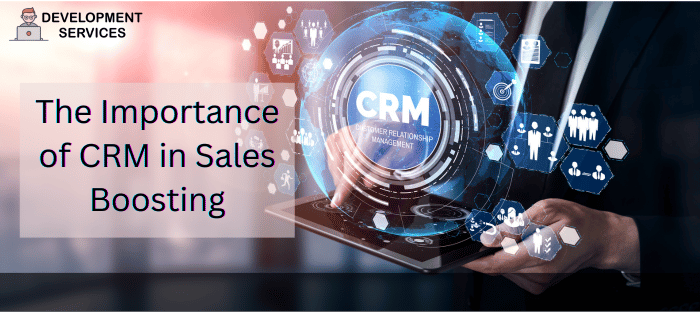
A CRM system is an integrated collection of applications, usually cloud-based, like the marketing cloud, sales cloud, and service cloud that compile and store client data. This system presents a central hub for sales teams to manage customer interactions, thereby enhancing the customer experience (CX) by ensuring every customer is catered for.
As a vital sales tool, a CRM system surpasses being a mere contact management system. With full utilization, a CRM allows sales representatives more time to engage with customers, which leads to increased business transactions and improved customer loyalty.
Both small and large-scale businesses stand to gain significantly from the utilization of an all-encompassing, cross-functional CRM solution.
Is It Time for a CRM Tool?
Like many cloud-based software acquisitions, the need for CRM software arises as a solution to problems like declining sales, customer attrition, and stalled growth.
A CRM system not only boosts the inflow of leads but also assists the marketing team in reaching out to new customers more rapidly. It supports the sales team in expediting deals and bolsters customer service. When customer information is added to your customer service software, customer service representatives can meet customers’ needs more effectively and efficiently.
Here are eight signs you might need to consider a CRM system:
- Sales Process Difficulties If your business is struggling to meet its current demands, it might be time to invest in a CRM solution. A CRM can sift, scrutinize, and prioritize your sales leads, allowing your sales team to focus on closing opportunities while providing prompt and accurate responses to customers.
- Challenges in Building Customer Profiles If you’re unable to locate all your customer data points, it’s almost impossible to create an ideal customer profile. With a CRM, you can avoid unnecessary status meetings and allow your sales team to spend more time with customers.
- Poor Customer Service If customer retention rates are dropping and contact center handling times are high, it’s time to consider a CRM tool. A good CRM system equips your representatives to deliver exceptional service by providing a unified view of the customer.
- Lack of Collaboration Between Marketing and Sales Departments With a CRM system, you can break down departmental silos and foster collaboration among different teams. CRM ensures that all teams have access to the same data, leading to enhanced productivity and efficiency.
- Inability to Identify High-Value Accounts A robust CRM tool helps identify your top customers, allowing you to nurture these relationships and increase customer loyalty.
- Difficulty Identifying Contacts within an Account A CRM solution can keep track of contacts within a business, enabling personalized communication and maintaining important relationships.
- Incomplete or Inaccurate Customer Data Good CRM solutions can automatically fill in missing customer information and eliminate duplicates, ensuring your customer data is complete and up-to-date.
- Complicated Forecasting and Reporting If generating reports is a time-consuming task, a good CRM system can simplify this process by providing centralized, real-time data.
Enhancing Your Business with a CRM Solution
Organizing and managing your data with a CRM platform leads to a more comprehensive understanding of your customers. This comprehensive understanding, in turn, enhances your messaging, speeding up sales cycles, and delivering better, more efficient customer service. By removing data silos, a fully integrated CRM enhances cross-departmental collaboration, providing a unified front to customers.
ROI of a CRM System
A CRM system provides high returns on investment. Although small businesses might manage without one initially, growth inevitably leads to a need for a comprehensive CRM solution. Fully integrated CRM can increase productivity across sales, service, and operations, leading to business growth of 20 to 30 percent.
With a fully utilized CRM system, companies have reported higher delivered proposals, increased overall sales quota attainment, and a
significant boost in revenue. Here’s how a CRM system drives these results:
- Enhanced Customer Retention: By understanding customer behaviors and needs, you can develop strategies that enhance customer retention. Retaining customers is often more cost-effective than acquiring new ones, and loyal customers are likely to become advocates for your brand.
- Increased Sales Efficiency: A CRM system organizes your sales process, reducing time spent on administrative tasks and enabling your sales team to focus on what they do best – selling. It can also streamline sales forecasting, providing you with real-time data and allowing for more accurate predictions.
- Better Decision Making: By offering an overall view of customer data, a CRM system supports better business decision-making. It can highlight successful strategies, identify opportunities for improvement, and provide insights into customer preferences and behaviors.
- Improved Marketing ROI: A CRM can segment your customers based on their behaviors and preferences, allowing for targeted marketing strategies. This can increase conversion rates and improve your marketing return on investment (ROI).
- Streamlined Operations: By integrating with other business software, a CRM can streamline your operations. This can reduce duplication of work, improve communication among teams, and increase overall productivity.
- Scalability: As your business grows, so does your customer base and the complexity of managing relationships with them. A CRM system can grow with your business, providing you with the tools you need to manage these relationships effectively.
The need for a CRM system becomes evident as your company grows, and customer management becomes too complex to handle manually. Remember, the goal is to maintain a positive customer experience, and CRM systems play a vital role in ensuring this. However, the choice of CRM should be made carefully, considering factors such as business needs, the size of your team, your budget, and the CRM’s scalability.